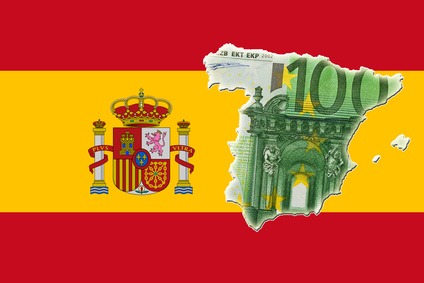In Spain, too many working people aren’t getting paid. The magnitude of this moral hazard is estimated at 35 billion. This adds to a previous revelation about hidden Spanish debt, and comes at a critical political moment.
The government has made serious cuts, and distanced itself from neighboring Portugal, and other troubled Euro-zone countries such Ireland and Greece.
But it is not the central government. The regional authorities, known in Spain as “communities” and the municipalities are problematic. Since the beginning of the crisis, their debt rose significantly and became a major part in the total debt.
This is already known. What wasn’t known until a few days ago, is that companies controlled by these public authorities have around 26 billion euros of debt that wasn’t counted up to now.
New hidden debt
Spain has an unemployment rate of 21.29% – unbelievably high for an industrialized country. But even the people that are working, don’t always get paid. Some local authorities just run out of money and delay payment to workers.
When labor is contracted to other companies, these companies often have to chose between lending more money from the banks or delaying the payment to the workers.
Contrary to public debt, these numbers are very hard to calculate. It is now estimated that town halls alone have about 35 billion euros in unpaid debt.
Critical timing
Unpaid workers, unemployed people and others began protesting. A movement of young people, sometimes called indignados or ciberindignados by the media, have started camping in Madrid’s Puerta del Sol square. They are demanding a change in the electoral law, want fair salaries (those that are paid) and affordable housing.
They are organizing their protests through Twitter, using the hash tag #acampadasol or #15m (For May 15th), cleaning up the square and consist of people disillusioned from both major political parties. The magnitude is still small, but the sights seem familiar from Tahrir square in Cairo.
The campers stayed at the square throughout a rainy night and seem to grow in numbers. The police didn’t send them away despite a decision made by the local authorities. Protests have spread to other cities, including the second largest city in the country and the capital of Catalonia, Barcelona. The local authorities there don’t know what to do about the campers at Placa Catalunya.
And speaking of Catalonia, S&P just downgraded the credit rating of the region.
On Sunday, May 22nd, there are elections in municipalities and in 13 out of 17 communities. After these elections, the newly elected will have to deal with all this debt and rest, some already surfaced, and some still hidden.
This is a risk factor for the Euro, for the week beginning on May 22nd. Spain is Europe’s fourth largest country. In part, the bailout efforts in other countries were meant to stop contagion to Spain. The government has made some moves. The local authorities have done less, and they can weigh heavily on the country.
Further reading:
- For more on Euro/Dollar, see the EUR/USD forecast.
- 8 Worrying Similarities Between Spain and Ireland – on the banking troubles.

